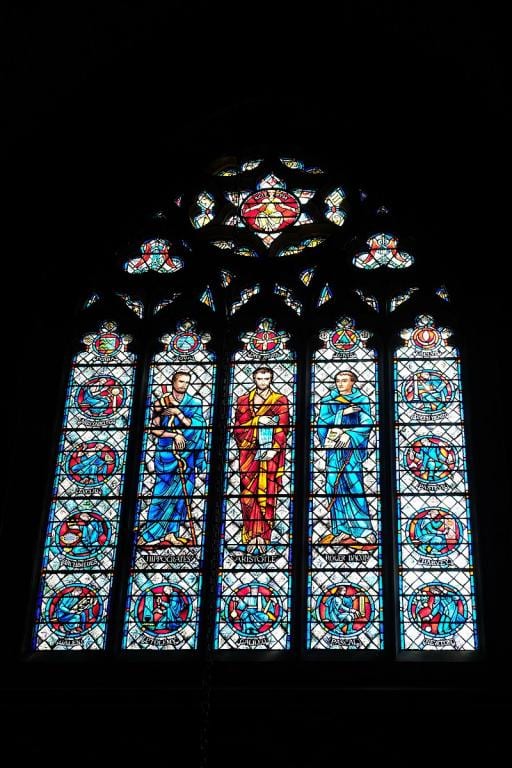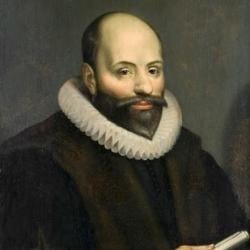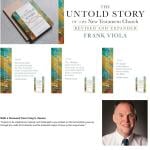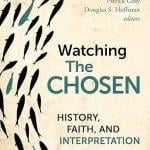What Is the Essence of Christianity? Part 1
Obviously, this question would take a whole volume to answer and even one volume might not be adequate to answer it. There have been several such volumes. Atheist Ludwig Feuerbach famously wrote a volume entitled Das Wesen des Christentums (pub., 1841). Liberal Protestant church historian and theologian Adolf Harnack gave a series of lectures in Berlin in 1900 with that same title, but it was published in English as What Is Christianity? in 1901. Many scholars (and some non-scholars) have written books and articles about the essence of Christianity. Here I give some of my own thoughts about the subject.
*Sidebar: The opinions expressed here are my own (or those of the guest writer); I do not speak for any other person, group or organization; nor do I imply that the opinions expressed here reflect those of any other person, group or organization unless I say so specifically. Before commenting read the entire post and the “Note to commenters” at its end.*
Let me first clear away some underbrush. Whatever the essence of Christianity is, it is not simply what people who call themselves “Christians” believe or experience or do. By inquiring into the essence of Christianity we are asking about what Christianity ought to be in order to be authentically itself.
If anyone wants to define the essence of Christianity by what most people who call themselves Christians have done or believed or experienced (past or present), then I have no conversation with them about the essence of Christianity. I am asking about it theologically, not sociologically.
In order to define the essence of Christianity theologically we have to look at it historically, in terms of its foundations, its prototypes—persons and documents—and not at its later distorted permutations.
Historically, the debate has been about whether the essence of Christianity is belief (doctrine), experience (spirituality), or practice (ethics). Here, in order to make things manageable, I am going to focus on Protestant theology about the essence of Christianity.
Even Protestant Christians need to answer this question not only using the Bible (especially the New Testament) but also the early church fathers. The question has to be answered biblically and historically. The alternative is to accept any current definition of Christianity which leads to the concept becoming meaningless.
Now let me make my point even more clearly (which I realize always brings strong disagreement and harsh criticism). All over the world one finds churches that call themselves “Christian” but have very little in common with each other. When one goes around and into these extremely diverse churches, what is one to make of them? Can they all really be “Christian”—authentically? To say yes is to sacrifice Christianity on the altar of radical diversity and even relativism. The concept becomes meaningless.
I have read the early church fathers. I taught historical theology for many years and that included the whole scope. I spent many years reading and teaching about the whole scope of Christian history—around the world, not just in Europe or North America. A few years ago I set aside an entire summer to read every book of African theologies I could get my hands on. I have read many books of Asian theologies, Latin American theologies, and theologies coming out of Europe. This has literally been my adult life’s work.
My conclusion—at this point approaching the end of my career as a Christian theologian and even my life—I have to conclude that “Christianity” seems to be a blooming, buzzing confusion (to borrow a term from philosopher William James).
Is there any “essence of Christianity” that helps bring some unity to authentic Christianity in spite of differences of style which will always exist? Is there some “touchstone” (I will not say “litmus test”) one can use to decide “That particular church or group of churches is authentically Christian and that particular church or group of churches is not authentically Christian?” If not, then “Christianity” is meaningless. I fear that is where we are nearly at. There are numerous reasons for that but one, I believe, is that most contemporary people have given up on the concept of essences. To them, there are no essences of thing—especially religion (but also political movements).
When the World Council of Churches Faith and Order Commission decided there had to be some way of distinguishing possibly true and authentic Christianity from counterfeit Christianity they came up with the criterion “Jesus Christ is God and Savior.” Virtually any church that would affirm that could become a member while any church that denied that could not become a member.
But is that criterion sufficient? I don’t think so.
Story: Years ago I had a good friend who earned his Ph.D. in theology from a major European university and went to teach at an African seminary affiliated with a major African indigenous church/denomination/ movement. After teaching there for a year he told me that all the leaders and members of that church believe that their “prophet” was the incarnation of the Holy Spirit. They did not include that in their written doctrinal documents, but he came to believe it was a universal belief among that church’s leaders and informed adherents.
That church, one of the largest in Africa, is a member of the World Council of Churches. What to make of that? Just accept it as authentically Christian in spite of its belief that clearly clashes with everything the church fathers, medieval theologians, reformers and post-reformation Christian leaders believed? We can say with certainty that all of them would reject that belief as incompatible with true, authentic Christianity.
(Warning to would be commenters: Do not name that or any church. I am not here out to identify churches that are false or counterfeit; I am here only attempting to help Christians begin to have mental discernment that separates the true from the false when it comes to this blooming, buzzing confusion of empirical “Christianity” in the world today.)
Back now to the three major options for defining the essence of Christianity—right belief, right experience, and right practice. These have been labeled “orthodoxy,” “orthopathy,” and “orthopraxy.” And among Christian theologians, and this filters down into the ranks of church leaders and especially decision-makers of cooperative, “umbrella” groups of churches and Christian organizations, which one of these is closest to defining the essence of Christianity?
Since at least the post-reformation era in Europe and the United States, conservative Protestants, and especially those who we call fundamentalists, elevate orthodoxy to the supreme status in regard to defining the essence of Christianity. But not only fundamentalists! Very influential evangelical theologian Millard Erickson famously defined the enduring essence of Christianity, across time and cultures, as doctrine. (See volume 1 of his three volume Christian Theology published by Baker Publishing.) Liberal-leaning Protestants have tended to elevate experience, especially a universal human “God-consciousness,” as the enduring essence of Christianity, while some liberal-leaning and liberation theology-leaning Protestants have tended to elevate ethics, orthopraxy, to that status. Which is it? Orthodoxy, orthopathy, or orthopraxy?
*Note to commenters: This blog is not a discussion board; please respond with a question or comment only to me. If you do not share my evangelical Christian perspective (very broadly defined), feel free to ask a question for clarification, but know that this is not a space for debating incommensurate perspectives/worldviews. In any case, know that there is no guarantee that your question or comment will be posted by the moderator or answered by the writer. If you hope for your question or comment to appear here and be answered or responded to, make sure it is civil, respectful, and “on topic.” Do not comment if you have not read the entire post and do not misrepresent what it says. Keep any comment (including questions) to minimal length; do not post essays, sermons or testimonies here. Do not post links to internet sites here. This is a space for expressions of the blogger’s (or guest writers’) opinions and constructive dialogue among evangelical Christians (very broadly defined).












